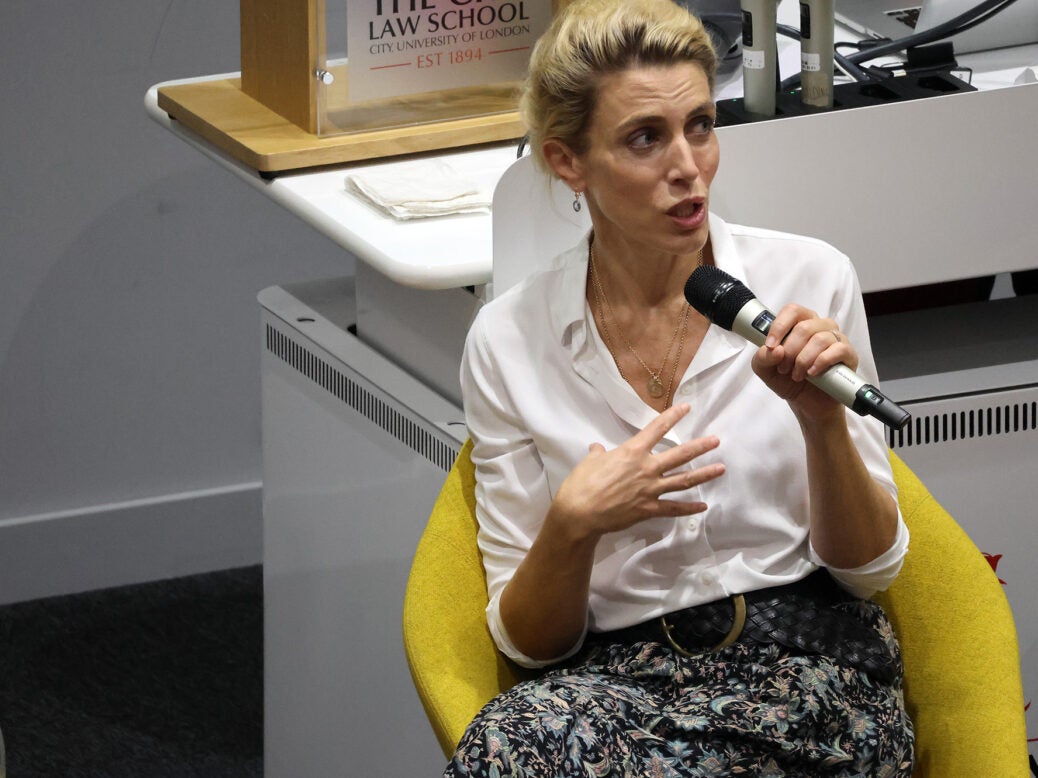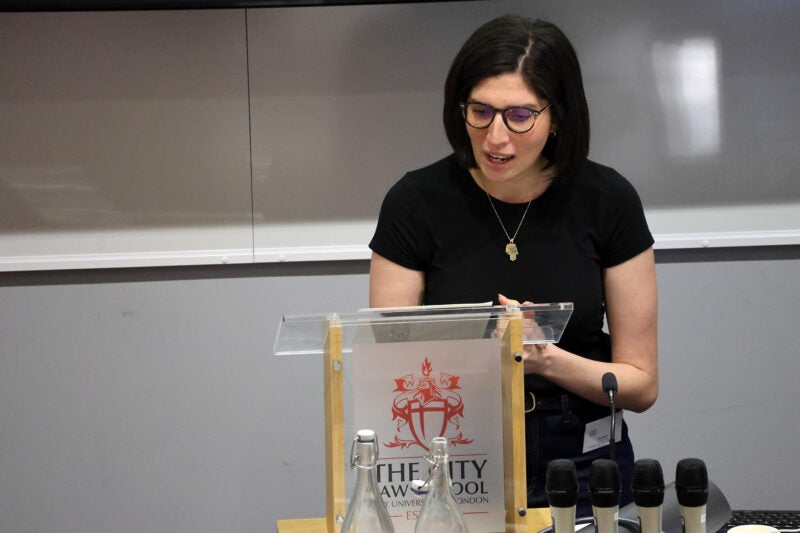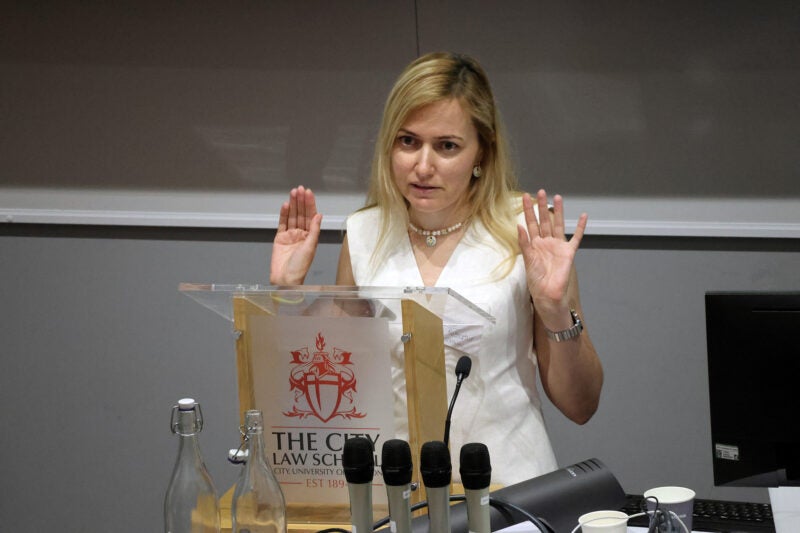
“I get death threats all the time, my children get death threats”, CNN journalist Clarissa Ward told a London conference on mental health and journalism.
The US news channel’s chief international correspondent discussed the implications of trauma during the Mediastrong symposium, held at City St George’s University in London.
She said maintaining “mental discipline” was a “massive undertaking” during intense moments covering conflict.
She described her job as a “juggling act” between “staying calm and holding the space” alongside “all the things that you have to do as a journalist.”
She said: “I was in a refugee camp in Somalia, we had been given fifteen minutes by UN security in this camp, we had ten/twenty things on the checklist.
“I need to get that shot, I need to do a stand-up, I need to do this, I need to do that.
“I was standing with this woman and she’s telling me about how she’s buried two of her children.
“I was panicking, I wanted to hear her story, but I also needed to do all these other things.
“I remember catching myself. No, I am going to sit and be with this woman and have this conversation. We are going to alter the space and give that grace.”
Ward said it is no longer only on-the-ground journalists who experience trauma.
“I have more trauma in an hour on my Instagram feed than in half the trips I do…
“It’s not easy in the age of social media, to go with the flow and accept it.
“Sometimes people are going to hate you, I get death threats all the time, my children get death threats.
“It’s obviously deeply unpleasant when you add it to the intensity of the job that we’re doing already.
“How do you process that?
“When you’re in extreme, intense situations you have to be able to have humour and camaraderie.
“It is really important to have a safe space among a team.”

Reporter Aya Ibrahim of German state broadcaster Deutsche Welle (pictured above) said documenting the war in Gaza left an “invisible wound”.
She said: “A sense of common purpose was our shield. Looking back, it must have been what kept us going… it must have been what kept us sane”.
For Ibrahim, reporting on the war in Gaza without being able to enter the region took a toll.
“Not being able to be there and being forced to cover the story from afar – that slowly chipped away at the at the sense of mission that I felt had protected me for so long.
“I wasn’t physically injured… but that lack of access… it left somewhat of an invisible wound. A moral injury.”
Ibrahim said that her writing “suffered” and “I felt deeply, deeply alienated from what I had thus far understood to be the promise of journalism.”

Chair of the Donbas Media Forum Liubov Rakovystia (pictured above) runs the NGO DII Ukraine. She said: “If you go to Ukraine and suggest psychological support, a lot of journalists just refuse to get it because they say there are other people who need it more than them…
“A lot of people prefer just to have a drink.”
Former director of BBC News Fran Unsworth told the conference: “Back in the nineties… was the first time [safety] came on the agenda. Then, it was about looking after journalists in the field in terms of equipment…
“Looking after the mental health of our teams on the ground… only really happened when quite a few of them came back and clearly had problems.”
Unsworth said that “a new frontier” of harm was on the rise: “online abuse”.
She recalled an instance involving political correspondent Laura Kuenssberg: “She was taking an enormous amount of heat in the online space…
“To my shame when somebody said: ‘What are you doing about this at the BBC?’
“I said: ‘I don’t know really. Not much. What can we do?’
“I now know there is actually quite a lot that can be done”.
What publishers can do to improve newsroom mental health
Founder of the Mediastrong conference Leona O’Neill encouraged newsrooms to sign the Newsroom Mental Wellbeing Charter. It states: “By signing… media organisations commit to adopting practical principles that safeguard the mental health of their teams”.
These include commitments to:
- Provide staff with access to information on recognising early signs of stress, burnout and secondary trauma.
- Offer targeted training on managing psychological stress and trauma-sensitive reporting
- Giving teams “adequate time to decompress after covering distressing stories”.
- Designate a “wellbeing advocate or point of contact within the organisation”.
Peer support networks were also highlighted as an important resource (training staff to provide confidential help to colleagues).
Canadian journalist Dave Seglins told the conference: “In our business… saying ‘I need some help’ – telling your boss that – there is fear of professional repercussion.
“[Fear] that I’m not going to be looked at as a strong journalist, I’m going to be considered weak, I’m going to be passed over for the next assignment.
“Peer support bypasses all that. It’s confidential, it’s going to colleagues, and I think that’s why it’s been so successful – because people don’t want to bring the problems to the bosses.”
Seglins established a peer support network within CBC in 2023 and helped launch the Canadian News Industry Peer Support Network in May 2025.
Email pged@pressgazette.co.uk to point out mistakes, provide story tips or send in a letter for publication on our "Letters Page" blog
